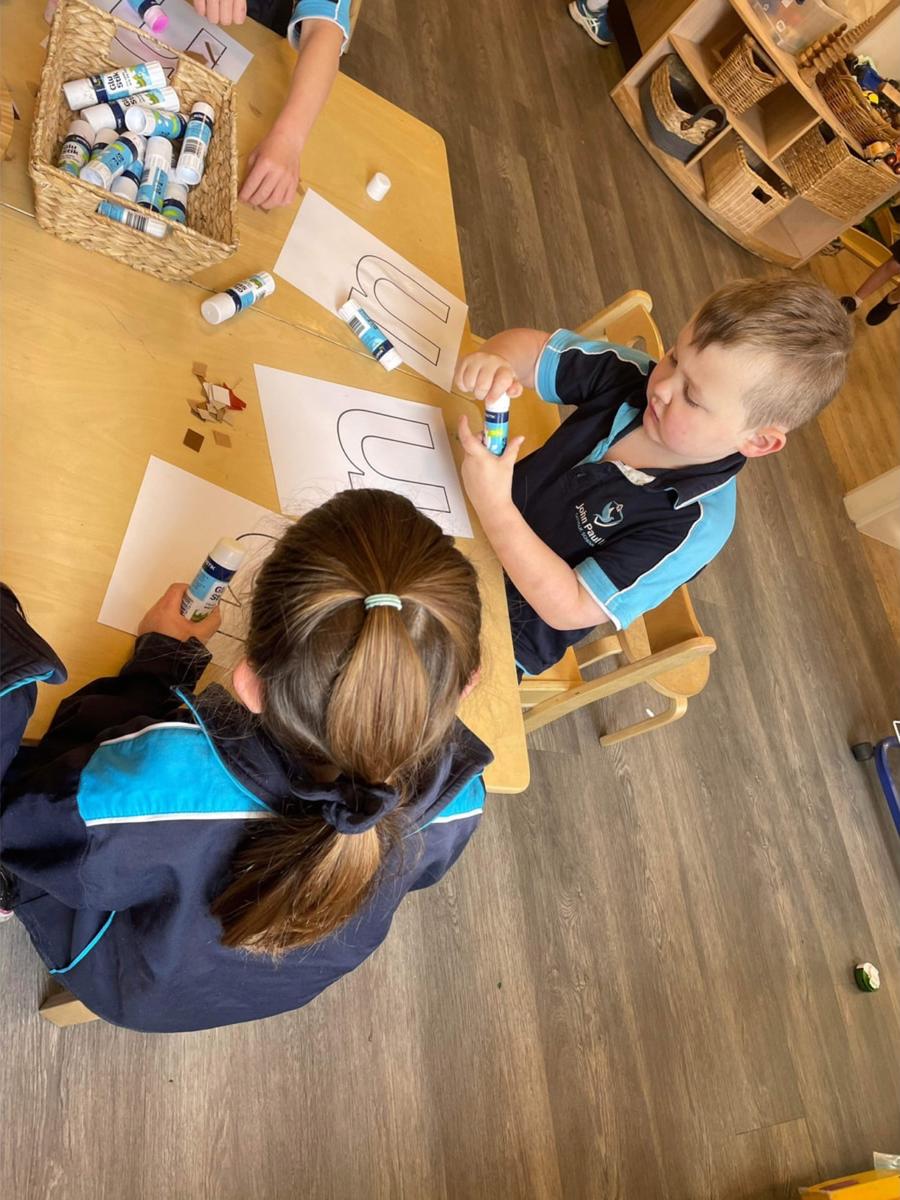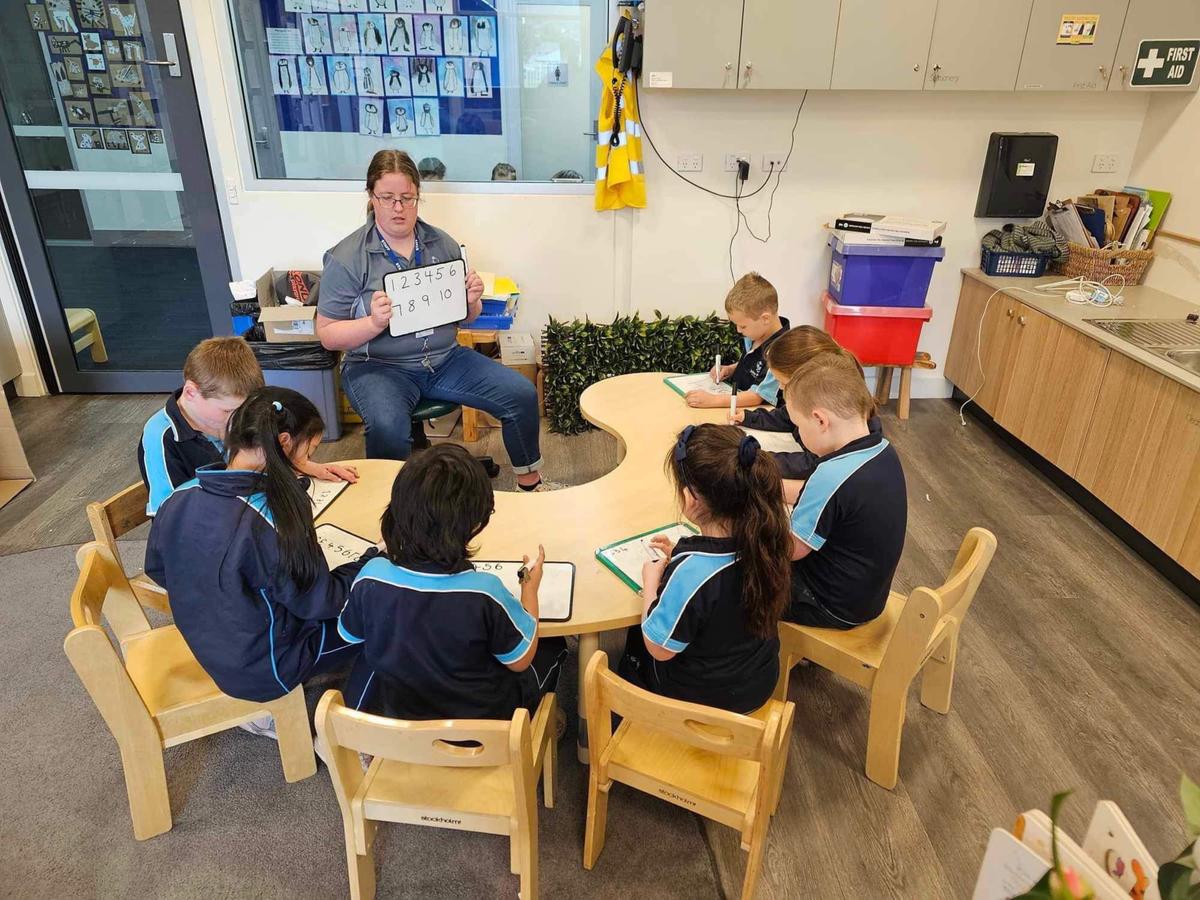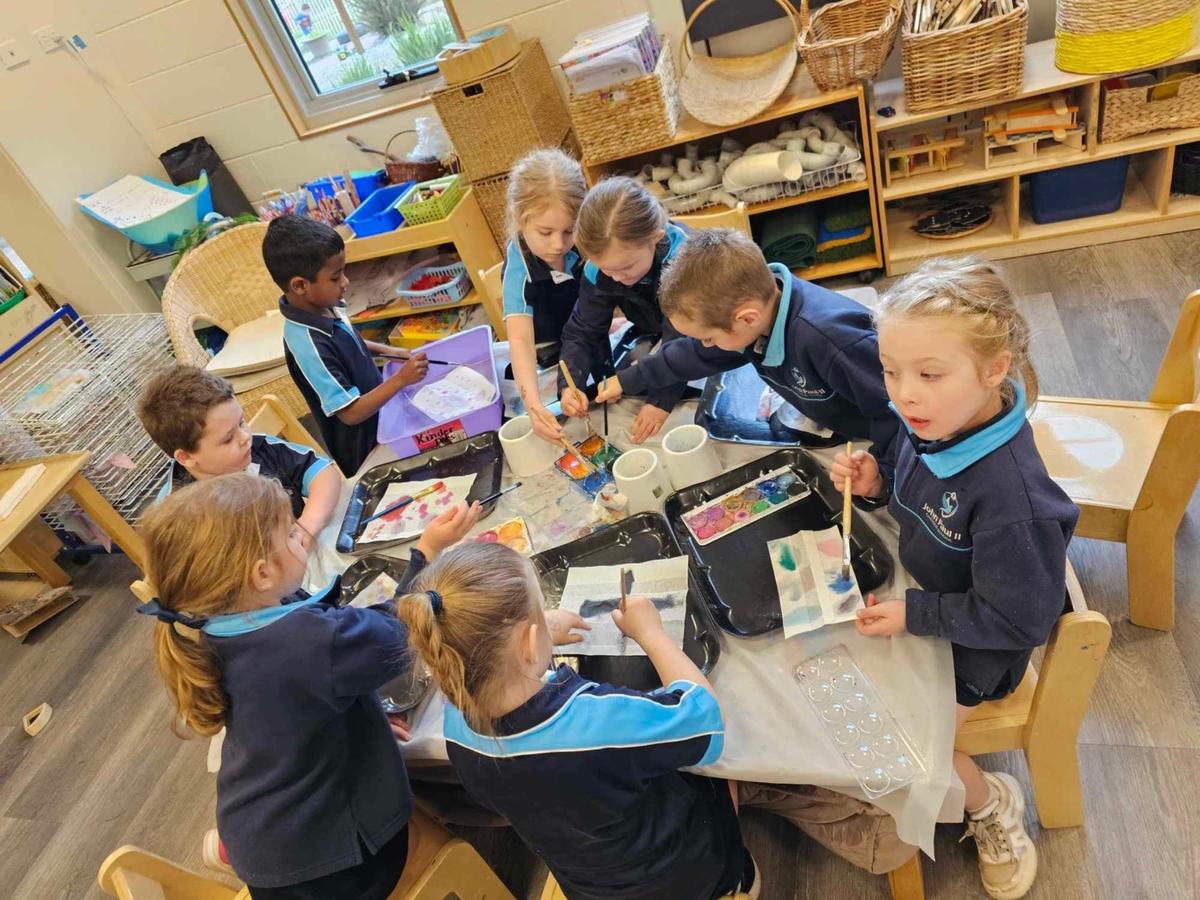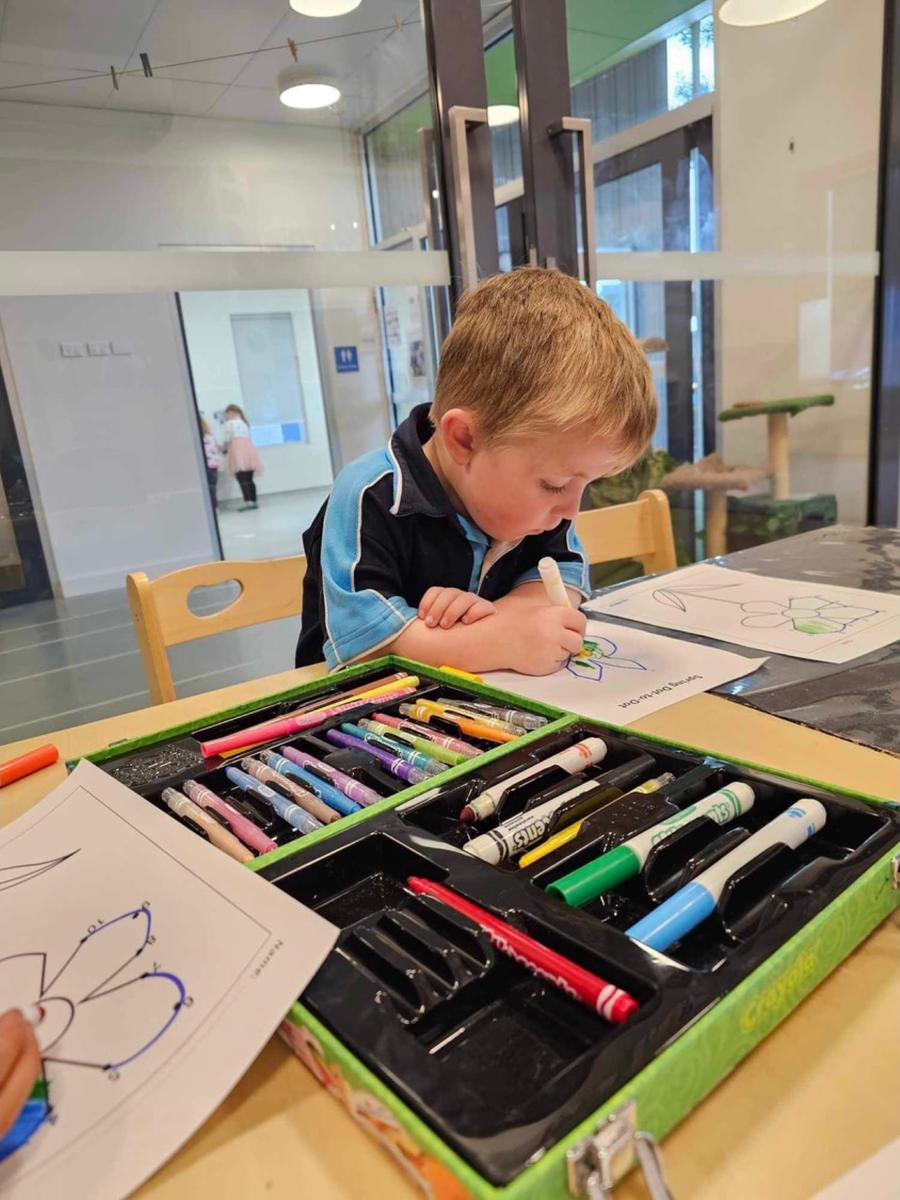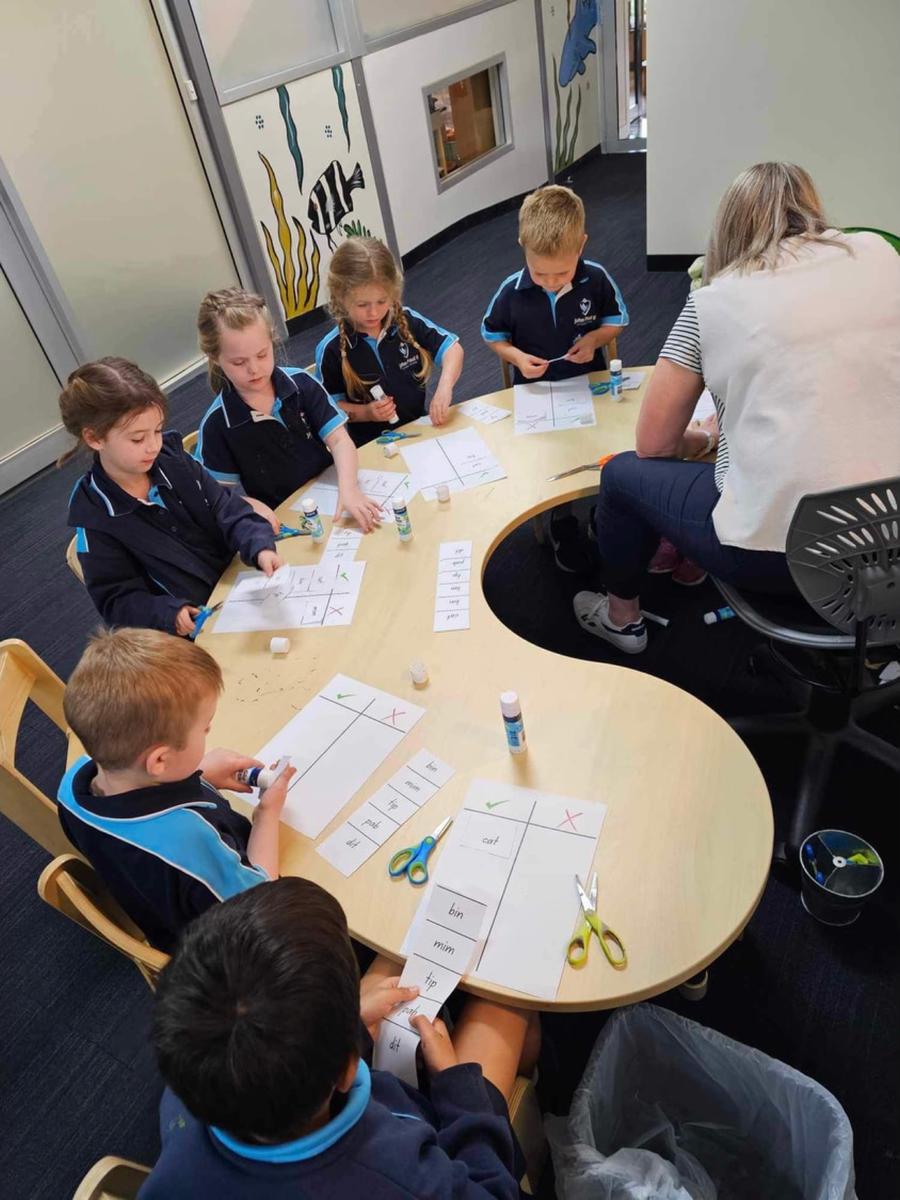Clever Class | KINDER
S A P L I N G S

Clever Class | KINDER
S A P L I N G S


During rotation groups, we engaged in a variety of literacy, numeracy and creative art experiences.
In our literacy groups, children completed different tasks depending on their current literacy skills. Some children worked hard to decode real and nonsense words, demonstrating persistence as they sorted them into the correct groups. Some other children exercised their phonetic understanding and letter recognition by categorising picture cards by their initial sounds. Other groups expanded and consolidated their understanding of sentence structure, identifying and verbalising the 'who', 'do' and 'what' based on a photo. Together, we worked on making the sentences richer and more interesting and expanded on different words for the same thing for example: “the girl is eating an apple” could also be “the girl is biting an apple” or “the girl is munching an apple”.
These literacy experiences help children make sense of language and text, a critical element of Outcome 5 in the Early Years Learning Framework (Children are effective communicators). By working on real and nonsense words, and by constructing sentences, the children are not just learning to recognise letters or words, but also understanding language structure, enabling them to express their thoughts more effectively.
In our number work, the children practiced their number formations, developing their numerical fluency. They got involved in a friendly race against time, where we tried to write the numbers as quickly as possible, both forwards and backwards. This fun activity sparked a spirit of competition, pushing them to beat their previous times. We also played a number memory game, where numbers were written on a whiteboard with one number out of the sequence missing. Mrs Lange then hid the sequence of numbers after briefly showing it to the children. Their job was to recall and determine the missing number, engaging their memory and analytical skills.
The number work is enhancing children’s mathematical thinking and learning, which is in alignment with Outcome 4 - "Children are confident and involved learners". Racing against time introduces an element of fun into learning while motivating them to improve their own performance and allow their knowledge of number formation to move from their short term memory to their long term memory for easy retrieval. The memory game with numerical sequences furthers their recall skills and cognition.
